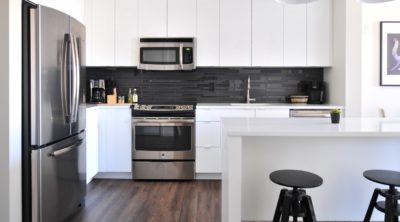
Elderly and disabled people can enjoy living independently thanks to continual improvements in home modification techniques.
Millions of Americans are living with disabilities or chronic illnesses, which, decades ago, would interfere with them being able to live on their own and manage their lives independently. However, thanks to clever design engineering and modern technology, many of those people are now able to enjoy their lives without having to depend on others to help them with their daily routines. Home modifications―converting or adapting an environment to make it easier to navigate―are more accessible and affordable than ever before.
Modifications make it easier to perform tasks, reduce the risk of accidents, and support the needs of people who want to live independently. Adaptations can range from low-cost solutions such as removing hazards, moving furnishings, changing room arrangements where activities occur, or adding simple assistive devices such as ramps or grab bars. More expensive modifications can include renovations such as installing a wheelchair-accessible shower, replacing staircases or stair treads, or improving wiring to eliminate the need for extension cords.
The National Directory of Home Modification and Repair Resources is an excellent resource for anyone needing information about home modification. Launched in 1990 by the National Resource Center for Supportive Housing and Home Modification, the directory was created through conducting a nationwide survey of organizations, professionals, and state and local agencies.
Resources were nominated and evaluated for inclusion in the directory, and hundreds of entries are included. The Center only provides the information for informational purposes, and does not endorse nor advertise any of the included providers. The directory can be found online at www.homemods.org.
The information is organized and grouped according to categories of home modifications. Each category contains answers to common questions, which are divided into topic categories you can click on to find out more. If you cannot find the information you seek on the website, you can send an e-mail request to have your issue researched. There are dozens of categories for which information is available, including:
- Listings of contractors and architects that can provide house designs and suggestions.
- Contractors or remodelers who will provide estimates on home modifications.
- Opportunities available for builders and remodelers who perform home modifications.
- Government grants or funding programs for renovations to make homes wheelchair accessible.
- Information about loans and financing room additions to accommodate elderly or handicapped relatives.
- Assessment tools for focusing on various aspects of home modifications.
- Checklists for evaluating the safety of your home for disabled or elderly people.
- Suggested guidelines and blueprints for home modification.
- Information about products for home modification, such as toilets, showers, stair lifts, and pull-down kitchen shelves.
- Information about devices for home modification to assist the hearing impaired.
There are hundreds of home modification improvements available that can make life easier for millions of people who are physically or mentally handicapped, or suffering from chronic or disabling ailments. Assistive technologies and modifications can pave the way for such people to live on their own, and there are grants and financing options available to make those modifications possible. Homemods.org is your one-stop shopping clearinghouse for any and all the information you will need to help modify someone’s home so they can enjoy living safely, comfortably, and independently.



